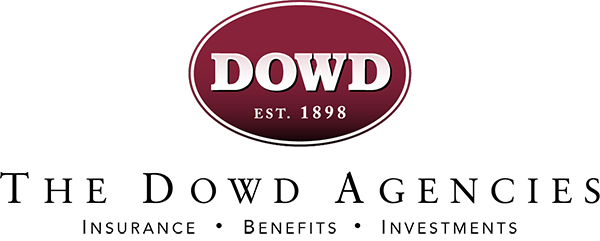
Let’s look at some of the top options available for retirement savings beyond 401(k)s.
Why Look Beyond 401(k)s for Retirement Savings?
Looking beyond a 401(k) for retirement savings can enhance your overall financial well-being. The first step in reevaluating your financial retirement strategy is to anticipate any wants and needs that may be hampered by the restrictions you might experience with a 401(k). Here are some top reasons why you might wish to explore additional retirement savings options:
Diversification
While 401(k) plans typically offer a range of investment possibilities, they are often limited to mutual funds or other investment vehicles selected by your employer. By exploring additional retirement savings options, such as IRAs (Individual Retirement Accounts), you can access a broader range of investment choices including individual stocks, bonds, ETFs and alternative investments. This allows you greater diversification and control over risk management.
Flexibility
IRAs offer greater flexibility in terms of investment choices, contribution limits and withdrawal options compared to 401(k) plans. You can choose from several options, including traditional IRAs, Roth IRAs, SEP IRAs or SIMPLE IRAs, each of which has its own set of rules and advantages. You can also choose the financial institution where you open your IRA, giving you more control over your retirement savings strategy.
Portability
It’s normal to change jobs multiple times over your career, which can lead to multiple 401(k) accounts scattered across past employers. Consolidating these accounts into a single IRA can simplify your retirement planning and make it easier to manage investments. IRAs also offer greater flexibility for withdrawals and rollovers—employees leaving their jobs before retirement may face restrictions on accessing funds in their employer-sponsored retirement plans!
Tax Planning
IRAs offer tax advantages similar to 401(k) plans, including tax-deferred growth for traditional IRAs and, for Roth IRAs, tax-free withdrawals in retirement. By strategically managing contributions and withdrawals from 401(k) plans and IRAs, you can optimize your tax situation, potentially reducing your tax burden in retirement.
What If I Don’t Have a 401(k)?
If you don’t have access to a 401(k) or similar employer-sponsored retirement plan, you can consider several alternative retirement savings strategies. Here are our top recommendations:
Open an Individual Retirement Account (IRA)
An IRA is a tax-advantaged retirement savings account that you can open independently of your employer. There are two general types of IRAs: traditional IRAs and Roth IRAs. With a traditional IRA, contributions may be tax deductible, and earnings grow tax-deferred until withdrawn in retirement. Roth IRA contributions, on the other hand, are made with after-tax dollars, and qualified withdrawals are tax-free. You can contribute to an IRA each year, subject to annual contribution limits set by the IRS.
Consider a Spousal IRA
If your spouse has earned income and you do not (or vice-versa), the working spouse can contribute to a spousal IRA on behalf of the non-working spouse. This allows couples to maximize retirement savings even if one spouse is not employed outside the home.
Explore Employer-Sponsored Retirement Plans for the Self-Employed
Self-employed individuals, freelancers and small business owners may have access to retirement savings options such as a Simplified Employee Pension (SEP) IRA, a Savings Incentive Match Plan for Employees (SIMPLE) IRA, or a Solo 401(k). These plans offer tax advantages similar to 401(k) plans and allow for higher contribution limits compared to traditional IRAs.
Utilize Taxable Investment Accounts
While not specifically designed for retirement savings, taxable investment accounts can complement traditional retirement accounts by providing additional investment flexibility and liquidity. With a taxable investment account, you can invest in a diverse range of assets including stocks, bonds, mutual funds, ETFs and real estate investment trusts (REITs), free of contribution limits and withdrawal restrictions.
Consider Health Savings Accounts (HSAs)
If eligible, you can contribute to an HSA to save for healthcare expenses in retirement. HSAs offer triple tax benefits: contributions are tax-deductible, earnings grow tax-free and withdrawals are tax-free when used for qualified medical expenses. After age 65, HSA withdrawals for non-medical expenses are subject to income tax but are not subject to the 20% penalty that applies to withdrawals made before age 65.
Maximize Social Security Benefits
Social Security can be a significant source of retirement income, especially if you are without access to an employer-sponsored retirement plan. You can maximize your Social Security benefits by delaying claiming until full retirement age or beyond—each year of delay results in higher monthly benefits.
Create a Comprehensive Financial Plan
Regardless of the retirement savings vehicles you choose, it’s essential to develop a comprehensive financial plan that considers your individual goals, risk tolerance, time horizon and overall financial situation. A financial advisor can provide personalized guidance and help navigate the complexities of retirement planning to achieve your long-term objectives.
How Do I Choose the Option That’s Right for Me?
It’s essential to consider your circumstances to ensure that your retirement plan is tailored to your specific needs, goals and financial situation. Here are some of the key circumstances to consider:
Employment Status
Your employment status—including whether you are employed full-time, part-time, self-employed, freelancing or unemployed—can influence your retirement savings options. For example, if you are self-employed, you may have access to retirement plans such as SEP IRAs or Solo 401(k)s, while working for employers without retirement benefits may require you to rely more heavily on IRAs or taxable investment accounts.
Income Level
Income level can affect your eligibility for certain retirement savings options and the amount you can contribute. For example, high-income earners may be subject to income limits that affect their ability to contribute to Roth IRAs or deduct contributions to traditional IRAs. Conversely, people with lower incomes may qualify for retirement savings incentives such as the Saver’s Credit.
Tax Situation
Both your current and expected future tax situations should be considered when choosing retirement savings options. Traditional retirement accounts offer tax-deferred growth, meaning contributions are tax-deductible upfront but withdrawals are taxed as ordinary income in retirement. Roth retirement accounts, on the other hand, offer tax-free withdrawals in retirement but no upfront tax deduction. You should consider your current tax bracket, expected future tax bracket and potential tax implications in retirement when choosing between traditional and Roth retirement accounts.
Risk Tolerance
Your risk tolerance is your ability and willingness to withstand fluctuations in the value of your investments. It should definitely be considered as a factor when selecting retirement savings options. If you have a higher risk tolerance, you may be comfortable investing in more aggressive options such as stocks, or you may prefer more conservative options such as bonds or cash equivalents. The mix of investments you choose should align with your risk tolerance and investment objectives.
Time Horizon
Your time horizon is the length of time remaining until you plan to retire. It’s smart to take your time horizon into account while developing your investment strategy and asset allocation. A longer time horizon may indicate that you have a greater capacity to take on risk and invest more aggressively; if you are nearing retirement, you may need to adopt a more conservative investment approach to protect your savings.
Retirement Goals
What are your retirement goals? Your retirement investment strategy should reflect your desired lifestyle along with your anticipated expenses and retirement age. If you have ambitious retirement goals or plan to retire early, you may need to save more aggressively and invest in higher-return assets. If your goals are more modest, or you have a longer time horizon, you may have more flexibility in your investment choices.
Healthcare Needs
Health savings accounts (HSAs) can help you save for healthcare expenses in retirement, especially if you are covered by a high-deductible health plan (HDHP). Additionally, you should consider the impact of healthcare costs on your retirement budget and ensure you have adequate savings to cover medical expenses.
Exploring Retirement Savings Beyond 401(k)s: Things to Keep in Mind
Investing involves risk, including the potential for fluctuating prices and loss of principal. No strategy assures success or protects against loss.
There is no guarantee that a diversified portfolio will enhance overall returns or outperform a non-diversified portfolio. Diversification does not protect against market risk.
Contributions to a traditional IRA may be tax deductible in the contribution year, with current income tax due at withdrawal. Withdrawals prior to age 59 ½ may result in a 10% IRS penalty tax in addition to current income tax.
A Roth IRA offers tax deferral on any earnings in the account. Qualified withdrawals of earnings from the account are tax-free. Withdrawals of earnings prior to age 59 ½ or prior to the account being opened for 5 years, whichever is later, may result in a 10% IRS penalty tax. Limitations and restrictions may apply.
Dowd Wealth Management, Private Advisor Group and LPL Financial do not offer tax advice or services. We suggest that you discuss your specific tax issues with a qualified tax advisor.
Questions? Comments? Contact us today. We would be happy to speak with you.
